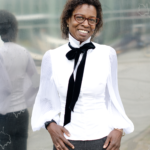
By Dr Joan van den Brink
In coaching situations it’s easy to experience some performance anxiety; we want to do a great job and help our clients to unlock solutions to whatever personal situation they have come to us to resolve. I have found myself wanting to be the perfect coach, which for me means being at the non-directive end of the spectrum and wanting to ensure that my coachees achieve some new insight during our sessions that helps them move forward. On occasion that has transferred to the client wanting to be a perfect coachee, having something meaty to discuss and having made some progress in between sessions. This is not optimal for achieving the transformative coaching that we desire.
“I struggle and I emerge”
So what does it take to reach this state of flow in coaching; those moments in a session when a client makes a real shift in how they view their situation and sees clearly what they need to do to change it. Erik de Haan[1] analysed the critical moments (instances that were exciting, tense or significant during the coaching interaction) and discovered that whilst less experienced coaches had a lot of doubts about their abilities as effective coaches, on hindsight they recognised that their critical moments were associated with breakthroughs in the coaching relationship. He also found that experienced coaches had more self-confidence and approached their coaching with an attitude of “I struggle and I emerge.” Meaning that they were aware that there are many things to attend to achieve a genuine coaching conversation and that there will be “surprises, unsought discoveries, unintended learning effects and unforeseen setbacks”. They experienced coaching as something “that has to be earned and protected, and that, due to a wide range of factors beyond the coach’s control, may sometimes have to be abandoned or on other occasions may bear exceptions fruits. Coaching is therefore a constant struggle.”
Trust
I believe that many of us coaches, want to ‘get it right’, whereas there is no ‘right’ in coaching. We need to let go of the need to prove ourselves to our clients and be present for them. To be comfortable with the ambiguity and uncertainty that we face in our coaching encounters and stop worrying about whether we will be good enough. We need to trust ourselves that the experience, skills and expertise that we already possess are enough to support our clients in their learning and growth. We need to focus on building a strong and trusted partnership with our clients so that they can do the necessary work. It may be that we don’t have many hours of experience in actual coaching situations, however, we do have our lifetime’s experience of being people who interact with others, have held various roles successfully and accumulated knowledge and wisdom. We also possess the orientation of helping others to learn and grow. If we quieten the noise in our heads, that self-talk that tells us we need to be perfect, ensure that the coachee defines some actions or makes a significant breakthrough in every session etc, we can access that part of ourselves that is needed in each and every moment of our coaching sessions. If we allow ourselves the right ‘intervention’ will emerge and flow from us being in the moment and fully attuned with what is happening in the here and now.
Michael Neill has written a number of books on coaching from the inside-out. In a recent talk Michael talked about providing a space for clients so that they can be still enough to get a totally new perspective on their situation. This requires us to be quiet and reflective with them and not worry about whether we are adding value or not. We are!
So I urge us to trust ourselves. Do the necessary preparation before the coaching session and in the session focus on our presence and using that to help our coachees find their own moment of stillness. From that place we can unlock creativity, breakthroughs and transformation.
[1] de Haan, E 2008, Relational coaching; journeys towards mastering one-to-one learning, John Wiley & Sons ltd, Chichester, England
Dr Joan van den Brink, “your personal chemist”, is a freelance management consultant and owner of Araba Consulting. She works with individuals and organisations to tailor solutions that make them stronger and more capable. Joan has had a rich experience in a wide-ranging career that spans Marketing, Operations, HR, Communications and Management Consulting in global and local public and private sector organisations. She has travelled extensively throughout her life, working in the Americas, Asia, Australasia, Africa, the Middle East and Europe.
Read more blogs from Joan: Once upon a time…

+ 2 more
Diverse career enables me to connect and relate to my coachees.
Excellent, profound and well researched article! Look forward to reading more of your pearls of wisdom and inspiration that can be drawn from these.